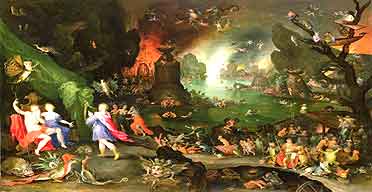
Hilary Mantel reflects on the enduring relevance of Orpheus and Euridice, arguing that, in the era of modern rationalism, we banish the ancient gods at our peril.
For some years I lived in Africa, in Botswana, and people there used to say that to see ghosts you need to look out of the corners of your eyes. If you turn on them a direct gaze, then, like Eurydice, they vanish.
The whole process of creativity is like that. The writer often doesn’t know, consciously, what gods she invokes or what myths she’s retelling. Orpheus is a figure of all artists, and Eurydice is his inspiration. She is what he goes into the dark to seek. He is the conscious mind, with its mastery of skill and craft, its faculty of ordering, selecting, making rational and persuasive; she is the subconscious mind, driven by disorder, fuelled by obscure desires, brimming with promises that perhaps she won’t keep, with promises of revelation, fantasies of empowerment and knowledge. What she offers is fleeting, tenuous, hard to hold. She makes us stand on the brink of the unknown with our hand stretched out into the dark. Mostly, we just touch her fingertips and she vanishes. She is the dream that seems charged with meaning, that vanishes as soon as we try to describe it. She is the unsayable thing we are always trying to say. She is the memory that slips away as you try to grasp it. Just when you’ve got it, you haven’t got it. She won’t bear the light of day. She gets to the threshold and she falters. You want her too much, and by wanting her you destroy her. As a writer, as an artist, your effects constantly elude you. You have a glimpse, an inspiration, you write a paragraph and you think it’s there, but when you read back, it’s not there. Every picture painted, every opera composed, every book that is written, is the ghost of the possibilities that were in the artist’s head. Art brings back the dead, but it also makes perpetual mourners of us all. Nothing lasts: that’s what Apollo, the father of Orpheus, sings to him in Monteverdi’s opera. In Opera North’s staging, the god took a handkerchief from his pocket, licked it, and tenderly cleaned his child’s tear-stained face.